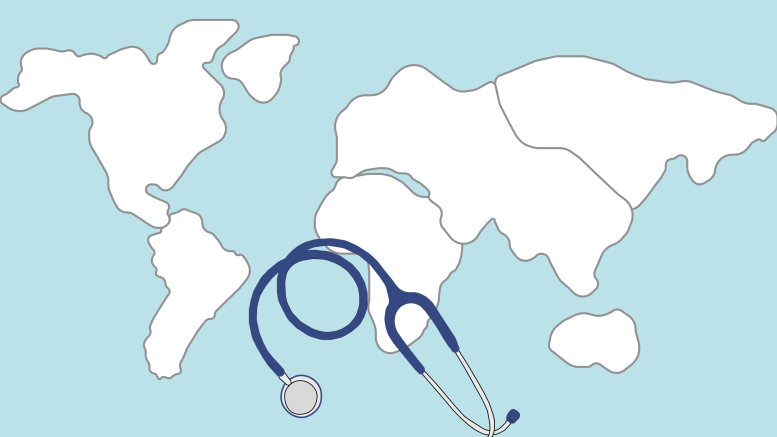Ties Boerma, a professor of global and population health at the U of M, has spent decades researching public health in low-resource settings, with a particular focus on Sub-Saharan Africa. His work has examined the HIV/AIDS epidemic, maternal and child health and the role of data in improving health outcomes.
Boerma’s career began with an interest in clinical work, as he was initially trained as a medical doctor in his home country of the Netherlands. He later shifted to public health research, focusing on broader public health rather than individual patient care.
His research has been shaped by global health crises, particularly the HIV/AIDS epidemic of the 1980s and 1990s, during which he conducted research primarily in Africa.
“This was the time that many things were unknown,” Boerma said. “It was coming up in the 80s and early 90s, and so [we were] trying to understand the epidemic, what can be done about it [and] what preventative measures can be taken.”
His research examined factors influencing the spread of the HIV virus and explored preventative measures such as male circumcision, which was found to reduce transmission. When treatment became available, Boerma worked with local clinics to effectively scale it up.
Boerma later turned his focus to maternal and child health, examining “hidden problems” such as maternal mortality and aiming to expose health disparities in the field.
“Even today, well over 250,000 women die every year due to causes that can be prevented,” he said.
His research has explored the reasons behind high maternal mortality rates and strategies to improve health systems in low-income regions. A key component of this research involves learning from countries within the region that lowered their mortality rates, increased their immunization coverage and improved the quality of health care delivered.
One of the most striking aspects of Boerma’s career was his long-term research in Tanzania. In 1994, he began working with the Tanzanian Institute in East Africa on a large-scale population study initially tracking 19,000 people across seven villages. Nearly three decades later, that number has grown to 55,000, providing a rare longitudinal view of public health progress.
“What we’ve seen there is an incredible improvement in so many indicators,” Boerma said. “They got a little bit richer, and they got many things, but it’s also so impressive to see how child mortality went down, how maternal mortality went down, how survival of adults improved so much.”
The study documented not only health improvements but also broader social and economic shifts. Boerma and his Tanzanian colleagues have jokingly referred to this transformation as the “mabati revolution.” Mabati, the Swahili word for corrugated iron, symbolizes the region’s development, where homes that were once made of thatch or mud now stand with solid metal roofs.
“Now everybody’s got their shiny roof,” Boerma said. “At least in the area where we did research. And along with that, so many things changed for the better — education, but particularly health, and that’s really inspiring.”
This long-term study exemplifies the role of public health research in tracking gradual change. Instead of focusing on a single medical breakthrough, Boerma explained that his research focuses on large-scale health trends, noting that “it’s not so much an invention of a drug or anything like that, but that’s what you do in population health — you try to see, is there a big difference?”
By working alongside Tanzanian researchers, Boerma has helped document a remarkable transformation in public health, providing insights into how sustained efforts can lead to lasting improvements in health and quality of life.
Eventually, his journey in academia brought him to the U of M.
“What I like about the way we’re doing work here in Manitoba is we are still doing global health, but we are linking the research in a very pragmatic way to what’s needed in the field,” Boerma said. “We’re trying to be as relevant as possible to the people themselves.”
Throughout his career, Boerma has emphasized the importance of ensuring that research has a tangible impact through collaboration to ensure relevancy to and impact on the target population.
“It’s not only important what you research and what your findings are,” he said. “It’s also important how you do the research.”
Boerma also reflected on the broader challenges within academia, in an era where researchers’ voices face increasing criticization and resource restriction.
“These are difficult times for academia and research,” he said. “It will be harder to get resources for critical topics, and it will be harder to get our academic voices heard. I think it’s still hugely important that there is a strong academic community like in Manitoba, and it’s important that we’re heard.”
“A critical, constructive voice is necessary for advancing society, for advancing health, for advancing health equity.”


